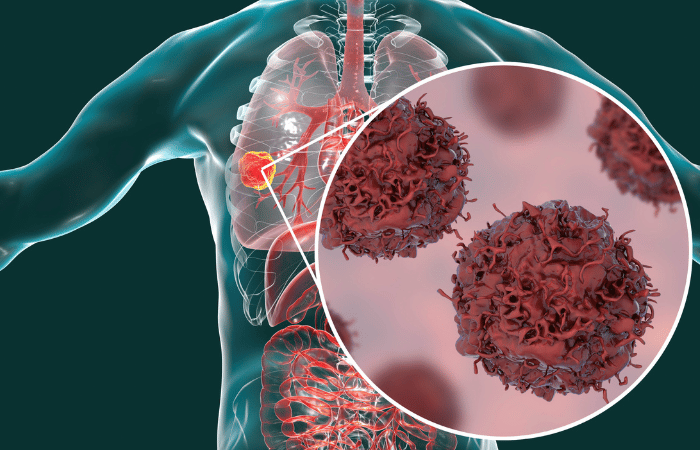
Advanced cancer treatment
Many advanced cancers are incurable, but they are typically treatable. You should understand whether the purpose of treatment is to cure the cancer, slow its growth and extend your life, or alleviate symptoms. Most of the time, we can manage physical symptoms even if the goal is not to cure the cancer.
Over time, treatments for advanced cancer have vastly improved. Some patients have access to new treatments, such as immunotherapy and targeted therapies, and the delivery of other treatments, such as chemotherapy, radiation, and surgery, has been improved. During and after treatment, supportive care therapies may help patients manage side effects and improve their quality of life.
However, treatment for advanced cancer is frequently complicated, and patients may be required to make challenging decisions regarding their cancer care. Some individuals receive a diagnosis of advanced-stage cancer. Despite treatment, some patients’ cancer continues to progress. Some cancer patients experience various symptoms or side effects, while others experience very few, depending on the type of cancer they have, its progression, and their response to previous treatments.
What is advanced cancer treatment ?
Advanced cancer treatment refers to next-generation therapies that go beyond traditional chemotherapy and radiation. These include:
-
Immunotherapy (PD-1/PD-L1 inhibitors, CAR-T cell therapy)
-
Targeted Therapy (Precision drugs based on genetic profiling)
- CAR T-Cell therapy (Treatment using own immune cells)
-
Proton Therapy (Advanced radiation with minimal side effects)
-
Nanotechnology (Drug delivery at the cellular level)
-
Minimally Invasive Surgery (Robotic and laparoscopic techniques)
The term “advanced cancer” is ambiguous. Advanced cancer is defined by the National Cancer Institute as “cancer that is unlikely to be cured or controlled with treatment.” Patients and physicians frequently use this term to describe cancer that has advanced beyond its initial stages. Cancer that has continued to grow despite treatment, spread to other parts of the body, caused secondary tumors, or recurred after a period of remission is considered advanced. In such cases, the cancer may have progressed after standard treatment options or conventional therapies have been utilized. Other patients with advanced cancer may not require initial treatment for a protracted period.
However, some patients may receive an initial diagnosis of what is considered advanced cancer. This category may include cancers diagnosed at stages 3 or 4 or when there is evidence that cancer cells have spread to other parts of the body prior to diagnosis.
Some patients with advanced cancer may experience few symptoms and feel relatively well despite the progression of their disease, whereas others may experience signs that have a significant impact on their quality of life. It frequently depends on the patient’s cancer type. Patients with indolent (slow-growing) non-Hodgkin lymphoma, for instance, may have very few symptoms despite having cancer in multiple organs and may not require immediate treatment. Others with less advanced forms of cancer may experience severe side effects and feel quite ill.
As important as a patient’s clinical status may be, how he or she is physically feeling and coping with the situation.

Treatment options in advanced cancer treatment
The treatment options for advanced cancers depend on the type, where it originated, and how far it has spread. In general, cancer that has spread will require systemic therapies, such as chemotherapy, targeted therapy, immunotherapy, and hormone therapy. These treatments are administered orally or intravenously.
Therapies, such as surgery or radiation, treat only a limited portion of the body, but they can prevent or alleviate certain symptoms. In addition, alleviating symptoms such as pain, constipation, stomach upset, and vomiting can help you feel better. Almost always, one can take steps to maintain or improve their quality of life.
The purpose of cancer treatment is to improve patients’ quality of life. You desire to feel as good as possible for as long as possible. Communicate with your cancer care team about what matters most to you. Please let them know what you would like to continue doing. You are entitled to make decisions regarding your treatment plan.
Some individuals may wish to continue cancer treatment if there is a possibility that the treatments will be beneficial. Others may conclude that the side effects and other burdens of cancer treatment, such as cost, travel, and time away from home, do not justify the potential benefits. Consequently, some individuals may decide that they no longer desire this type of treatment. Some of your loved ones may find the situation difficult to accept, but you have the right to make this choice. It is often beneficial to include loved ones in these difficult decisions. In any case, you should be able to make the best decisions for yourself.
The goal of treatment for advanced cancer is to keep the disease under control for as long as possible. This type of therapy could involve shrinking the size of the cancer or stifling its growth for months or even years. If such an outcome is no longer possible, cancer treatment focuses on relieving the disease’s physical and emotional symptoms.
Ask your doctor about other treatment options, including clinical trials, if your current medication ceases to be effective or if you find it difficult to manage the side effects.
The treatment for advanced cancer depends on the cancer’s origin and its spread. A multidisciplinary team (MDT) specializing in various aspects of your care will treat you. The team may include, among others, a surgeon, dietitian, pharmacist, and occupational therapist.
Chemotherapy
Chemotherapy is the most common treatment for metastatic cancer. The drugs kill or slow the growth of cancer cells. Chemotherapy drugs come in a wide variety, often administered in different combinations and dosages.
The duration of treatment is typically a few hours or days, followed by a rest period of 1–4 weeks. Most patients undergo multiple treatment cycles. The majority of chemotherapy drugs are administered by injection or intravenous drip, but some can also be taken orally. Ask your doctor about the optimal drug combination and the duration of your treatment.
Hormone therapy
Some cancers proliferate in response to specific hormones. These tumors are referred to as hormone-dependent tumors. Hormone therapy blocks the effect of the body’s natural hormones with synthetic hormones. The objective is to reduce the amount of hormones the tumor receives, which can help slow the cancer’s spread.
Your doctor mayYour doctor may recommend hormone therapy if you have breast or uterine cancer.t for prostate cancer is known as androgen deprivation therapy (ADT).

Targeted therapy
This is a type of drug treatment that employs molecular targets to inhibit the growth and spread of cancer by attacking specific characteristics of cancer cells.
Chemotherapy drugs function differently than targeted therapy drugs. Chemotherapy drugs circulate throughout the body, but they affect rapidly dividing cells in particular. They frequently reduce or eliminate the signs and symptoms of cancer, allowing patients to resume their normal activities. You may need to take the medications for an extended period and undergo regular tests to monitor the cancer.
Certain targeted therapy drugs for certain cancers are subsidized by the Pharmaceutical Benefits Scheme (PBS). Therapies not covered by the PBS are typically costly, but you may be eligible to receive them through a clinical trial.
Immunotherapy
This type of drug therapy employs the body’s immune system to combat cancer.
Different forms of immunotherapy operate in various ways. Some work by allowing the immune system to bypass cancer-established ‘checkpoints’ that block the immune system. Some types of cancer are currently treatable in Australia with checkpoint immunotherapy. It has been effective for some individuals, but not everyone.
Despite the recommendation for immunotherapy, predicting its efficacy is challenging. Rapid development is underway for new immunotherapy drugs; physicians will determine if any are suitable for you.
Radiation therapy
Radiation therapy may be used as a primary treatment alone or in conjunction with other treatments to kill or slow the growth of cancer cells and shrink tumors.
Radiation may also be used to alleviate the pain of patients with advanced cancer. A metastatic prostate cancer patient, for instance, may experience bone pain if a tumor presses on the spinal cord. Targeted radiation to the tumor may alleviate the pressure and pain.
Radiation oncologists can deliver a more precise dose of external beam radiation to cancerous tissues using sophisticated equipment designed to spare healthy tissue as a result of technological advancements. This more precise delivery may reduce radiation therapy’s toxicity and side effects. Internal radiation therapy enables radiation to be administered to a tumor using a catheter or device implanted inside or near the tumor. This method typically requires only a few treatments, as opposed torather thannventional radiation therapy.

Clinical trials
Cancer clinical trials investigate the safety and efficacy of new and experimental cancer treatments, drugs, and technologies. Before the government approves a new cancer treatment, it is necessary to conduct clinical trials. During the course of clinical trials, patients undergo newly proposed treatments, which may provide advanced cancer patients with treatment options not previously available.
The CTCA research staff only participates in clinical trials after weighing the relative benefits to our patients. We are involved in a large number of clinical trials. In the United States, CTCA is one of the largest contributors to the Targeted Agent and Profiling Utilization Registration (TAPUR) study. The purpose of the study is to enhance our understanding of how commercially available anti-cancer drugs perform on a wider variety of cancers by matching the drugs to tumors with specific genomic mutations that the drugs are designed to target.
Not all patients with advanced cancer qualify for participation in a clinical trial. In addition to a number of trial-specific requirements, you may need to have a specific type or subtype of cancer, be within a specific age range, have a cancer with a specific genomic mutation, and/or have exhausted all other treatment options. However, it is worth asking your oncologist about, particularly if he or she has run out of standard treatment options to recommend. You and/or your physician can search the ClinicalTrials.gov database for clinical trials.
Rehabilitation
Sometimes cancer can limit your activities. Rehabilitation is a means of enhancing your quality of life during or after treatment. Rehabilitation may help restore physical functioning through physiotherapy, occupational therapy, speech therapy, or artificial body parts (prostheses). It may also include emotional support, such as counseling.
Reintegration into the workforce is another form of rehabilitation. You may find that you must return to work with reduced hours. If you are unable to work or choose not to, you may need to engage in activities that make you feel engaged in life and connected to others.
For most individuals, rehabilitation is coordinated by their treatment center. If you have been treated in a private hospital, ask your doctor if these services are available. Your primary care physician or palliative care service can also coordinate your rehabilitation.
Advanced Cancer Treatment in China
China has become a hub for cutting-edge cancer care, with world-class hospitals and research institutions offering:
1. Immunotherapy & CAR-T Cell Therapy
Chinese hospitals like Peking University Cancer Hospital and Fudan University Shanghai Cancer Center are pioneers in immunotherapy, including PD-1 inhibitors and CAR-T cell treatments for leukemia and lymphoma.
2. Proton Therapy Centers
China has invested heavily in proton therapy, with facilities such as Shanghai Proton and Heavy Ion Center providing precise radiation treatment for tumors.
3. Precision Medicine & Genetic Testing
Institutions like BGI Genomics and Chinese Academy of Medical Sciences use AI and genomic sequencing to personalize cancer treatment.
4. Minimally Invasive & Robotic Surgery
Hospitals such as Tianjin Medical University Cancer Institute specialize in robotic-assisted surgeries, reducing recovery time and improving outcomes.
Why Choose China for Advanced Cancer Treatment?
-
Cost-Effective: High-quality care at a fraction of Western prices.
-
Innovative Therapies: Access to clinical trials and breakthrough treatments.
-
World-Class Facilities: JCI-accredited hospitals with cutting-edge technology.
Take the Next Step: Get a Free Consultation
If you or a loved one is battling cancer, explore advanced treatment options in China today. Our network of top oncologists and hospitals can help you access:
🔹 Personalized treatment plans
🔹 Second opinions from leading specialists
🔹 Assistance with medical travel & accommodations
📞 Contact us now for a free consultation!
📧 Email: info(at)cancerfax.com
🌐 Website: https://cancerfax.com/